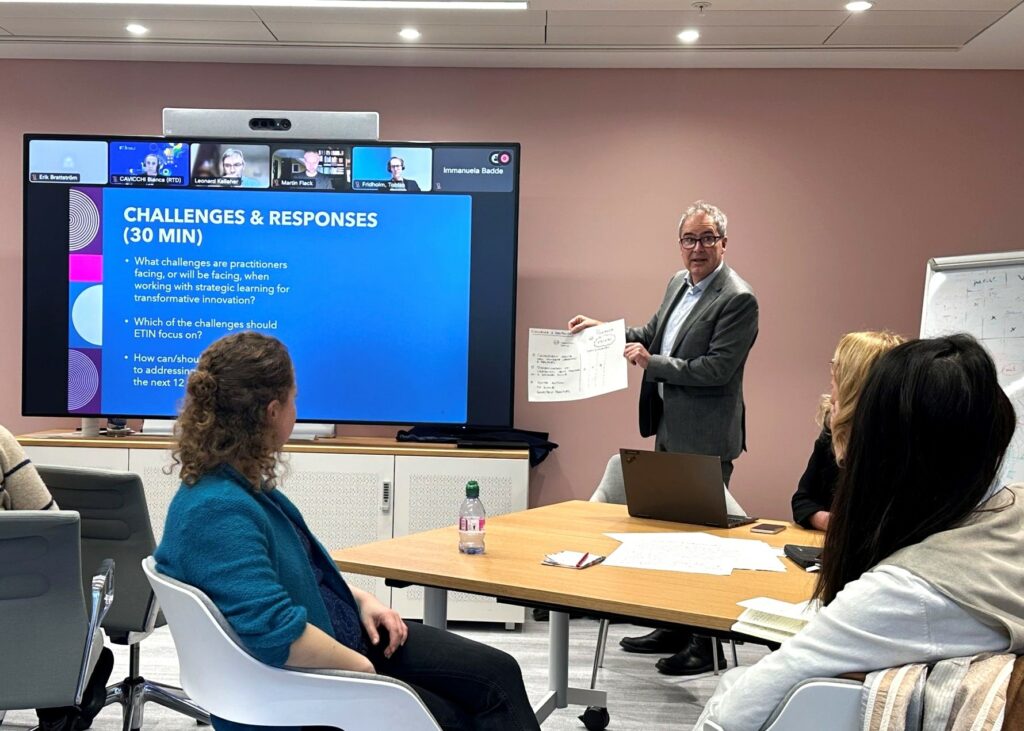The interest in Demand Acceleration continues to grow internationally. After further collaboration and discussions within the UN network, there are now hopes that the procurement methodology could soon be tested beyond Sweden's borders.
Jakob Lindvall is one of the team members behind the development of the Demand Acceleration methodology. During the fall, he has been working on creating an initial handbook, providing concrete guidance on how the methodology is utilized in public procurement.
Simultaneously, he has also showcased the ideology at various international networks. In November, he visited Geneva for the second time this year, attending a specialist panel convened by UNECE – the United Nations Economic Commission for Europe – to discuss innovation and competitiveness policies.
Putting policies into practice
In connection with the meeting, Jakob Lindvall participated in a think tank within the network ETIN (UNECE's Network on Transformative Innovation). The network aims to make policies contribute to practical transformation, including meeting the UN's global sustainability goals.
"It's relatively easy to create policies, but significantly harder to scale them up and have broad implementation. To meet the sustainability goals, it's not enough to experiment strategically; we must put our policies into practice," says Jakob Lindvall.
Invites new actors to participate
He believes that the Demand Acceleration methodology is doubly interesting from this perspective. Firstly, because it enables using public procurement as a force to drive innovation and increased sustainability. Secondly, because the methodology is based on the premise that the new services developed must be scalable – meaning good solutions can spread faster within the public sector.
"Implicitly, the thoughts on scaling also apply to the Demand Acceleration methodology itself. It operates under a so-called Creative Commons license, enabling other actors to both use and develop the methodology," Jakob Lindvall adds.

Jakob Lindvall's presentation of Demand Acceleration during the ETIN network's workshop in Geneva sparked significant interest. There are now hopes that the procurement methodology could secure its first international case, perhaps as early as 2024.
During the ETIN network's workshop, the significant potential of public procurement to drive innovation was also highlighted. According to the World Bank, these procurements globally constitute between 13 and 15 percent of GDP annually.
Just within the EU, it amounts to around 2.5 trillion Euros yearly, which is several times more than global investments in R&D.
"Despite most countries having an articulated strategy on public procurement, only a small portion of the funds are used to stimulate innovation. Instead, the public sector often buys ready-made products, even if they don't contribute to increased sustainability or quickly become obsolete," Jakob Lindvall notes.
Could support innovation in new markets
Consequently, there is substantial interest in how the Demand Acceleration methodology can be used to better harness the power of public procurement. Not least in countries in Eastern Europe and the South Caucasus, which are very active within UNECE. There, Jakob Lindvall sees an even greater need to support the market for sustainable and innovative solutions.
"There are numerous country- and region-specific reports indicating the potential in increasing the demand for new innovative solutions by leveraging the purchasing power of the public sector. And the problem is that we won't achieve the sustainability goals unless these countries catch up, but the same holds true within the EU," Lindvall emphasizes.
Believes in an international pilot case in 2024
As for how and in what way Demand Acceleration might be applied in an initial international case, Jakob Lindvall refrains from speculating. However, he is convinced that it's not very far away.
"There's significant interest from many countries, so I'd be surprised if we don't see an initial international example within the coming year."

